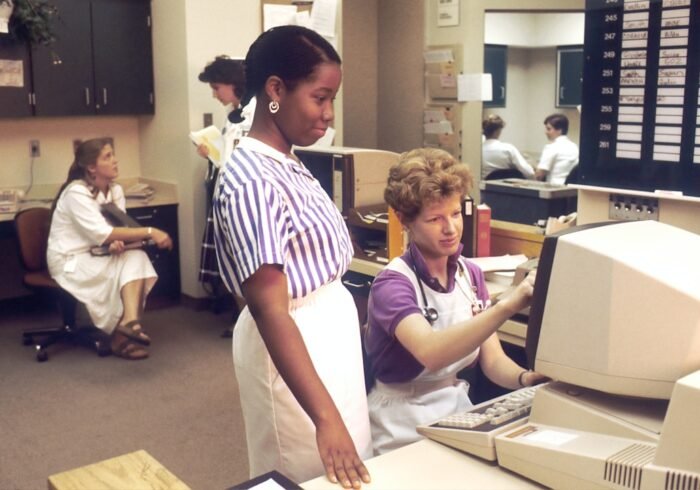Plastic pollution is a worldwide problem that has become one of the 21st century’s most urgent environmental concerns. Since the middle of the 20th century, plastic products have become more & more common, leading to an alarming rise in plastic waste worldwide, much of which ends up in rivers, oceans, and landscapes. This ubiquitous substance, renowned for its robustness and adaptability, has turned into a double-edged sword. It has transformed daily life and industries, but because of its durability, ecosystems and human health are seriously threatened.
Key Takeaways
- Plastic pollution is a global issue that is causing harm to the environment and wildlife.
- Many governments have implemented policies to address plastic pollution, including bans and restrictions on single-use plastics.
- Sustainable alternatives to single-use plastics are being promoted to reduce plastic waste.
- Waste management and recycling initiatives are being implemented to reduce the amount of plastic ending up in landfills and oceans.
- International collaboration and agreements are crucial in addressing plastic pollution on a global scale.
Over 300 million tons of plastic are produced each year, which highlights how urgent it is to address this issue. There are numerous repercussions from plastic pollution. Because so many species consume or become entangled in plastic waste, marine life is especially vulnerable and may suffer harm or even perish. Also, there are worries regarding the potential health effects of microplastics, which are tiny pieces that are produced when bigger plastic objects break down, getting into food chains.
The need for all-encompassing strategies to reduce plastic pollution and encourage sustainable practices is growing along with awareness of these problems. The seriousness of plastic pollution is starting to be acknowledged by governments worldwide, and they are putting policies in place to lessen its effects. Numerous nations have implemented laws aimed at regulating the manufacture, sale, & disposal of plastic goods. Certain countries, for example, have created national action plans that specify precise objectives for lowering plastic waste and encouraging recycling programs. These regulations frequently incorporate tools to track trends in plastic production and consumption, guaranteeing that those involved are held responsible for their environmental impact. Municipalities are also acting in addition to national policies.
Ordinances that restrict the use of specific plastics, like polystyrene containers and plastic straws, are being passed by cities. These regional initiatives frequently act as trial runs for more comprehensive national legislative reforms. Through encouraging cooperation between different governmental levels, communities can create customized solutions to deal with their particular problems associated with plastic pollution. Implementing restrictions & bans on single-use plastics is one of the most important trends in the fight against plastic pollution. These products—which include plastic bags, straws, plates, and cutlery—are made to be used right away and thrown away, which makes them a major contributor to the world’s plastic waste problem. Many nations have realized that attaining long-term sustainability objectives requires lowering dependency on these products.
| Country | Policy | Impact |
|---|---|---|
| United Kingdom | Ban on plastic straws, stirrers, and cotton buds | Reduction in single-use plastic waste |
| Canada | Plastic ban on six single-use plastic items | Reduction in plastic pollution in oceans and waterways |
| India | National Plastic Waste Management Rules | Regulation of plastic waste management and recycling |
Because of this, many jurisdictions have passed laws to gradually phase out single-use plastics completely. Depending on public compliance and the availability of substitutes, these prohibitions’ efficacy varies greatly. Certain areas, like the European Union, have enacted comprehensive laws that encourage companies to switch to more environmentally friendly options while also outlawing particular goods. Ensuring that businesses and consumers adjust to these changes is still difficult, though.
To promote a sustainable culture and persuade people to use reusable alternatives, education and outreach initiatives are essential. The promotion of sustainable alternatives is becoming more and more important as governments place restrictions on single-use plastics. Reusable containers, biodegradable materials, and creative packaging ideas are becoming more and more popular as effective alternatives to conventional plastics. Businesses are spending more money on research and development to produce goods that satisfy consumer demands and have as little of an impact as possible on the environment. To drastically cut down on dependency on fossil fuels, some companies are investigating plant-based plastics derived from renewable resources.
Also, the market is moving toward sustainability due to consumer demand for eco-friendly products. Nowadays, a lot of people actively look for companies that value environmental responsibility, which has increased the number of sustainable substitutes available.
Society may successfully attempt to lessen plastic pollution by promoting a sustainable culture via creativity & conscientious consumption.
To combat plastic pollution, recycling programs and efficient waste management are essential. In order to increase recycling rates and decrease landfill waste, numerous governments are spending money on infrastructure upgrades. Increasing access to recycling facilities, growing recycling programs, and putting deposit return programs for beverage containers into place are all examples of this. These kinds of programs not only support appropriate disposal but also a circular economy in which resources are recycled rather than thrown away. However, there are still obstacles in the way of attaining high plastic recycling rates.
Because incorrect disposal can make entire batches unrecyclable, contamination of recyclable materials is still a major problem. Campaigns to educate the public about appropriate recycling techniques are crucial to solving this issue. Communities can improve their waste management systems and lessen the quantity of plastic that ends up in landfills or the environment by promoting a better understanding of how to recycle efficiently.
Since plastic pollution is a worldwide problem that cuts across national boundaries, effective international cooperation and agreements are required to address its complexities. To address this issue on a worldwide basis, numerous groups and alliances have formed. Member states’ discussions about ways to address plastic pollution have been greatly aided by the United Nations Environment Programme (UNEP). Programs like the Global Partnership on Marine Litter are designed to encourage international collaboration in order to exchange best practices & create all-encompassing action plans. Also, rules pertaining to the trade in plastic waste have been added to international agreements such as the Basel Convention. These accords aim to guarantee that nations responsibly handle their plastic waste and refrain from transferring their pollution issues to less developed countries.
Cooperation between countries makes it feasible to present a united front against plastic pollution and strive toward long-term solutions that are advantageous to both people and the environment. Campaigns for public awareness & education are essential in combating plastic pollution because they educate people about its effects and promote ethical behavior. Numerous organizations are starting campaigns to increase public awareness of the harm that plastic waste causes to ecosystems & human health. To reach a variety of audiences, these campaigns frequently make use of social media sites, neighborhood gatherings, & educational initiatives in schools. Also, grassroots movements that encourage communities to take action against plastic pollution have arisen all over the world.
Through advocacy campaigns, sustainable living workshops, & local clean-up events, people are now better equipped to make decisions about their consumption patterns. These campaigns can encourage long-lasting shifts in perceptions regarding the use of plastic & waste management by encouraging a sense of accountability and community involvement. Although there has been a lot of progress in combating plastic pollution, there are still many obstacles to overcome. One significant obstacle is the startling rate at which plastics are still being produced; as long as people continue to want convenience goods, there will be an increasing amount of plastic waste entering the environment.
Also, new technologies might present risks if not handled properly, but they might also provide answers. For example, improvements in chemical recycling may open up new possibilities for plastics processing, but if strict regulations aren’t implemented, they might also result in higher production. But these difficulties also offer chances for cross-sector cooperation & innovation.
Investment in environmentally friendly practices and technologies has increased as a result of increased environmental consciousness. In a market where consumers are becoming more environmentally conscious, companies that put sustainability first can obtain a competitive advantage. Also, stronger frameworks for controlling plastic pollution worldwide may result from ongoing international cooperation. In conclusion, plastic pollution presents both enormous problems for modern society and chances for revolutionary change via cooperation, education, and innovation. Communities and individuals can cooperate to lessen the effects of plastic pollution for coming generations by adopting sustainable practices and cultivating a culture of accountability.
Government policies play a crucial role in reducing plastic pollution, as highlighted in the article “The Urgent Climate Crisis: A Call to Action”. This article emphasizes the importance of taking immediate action to address the pressing issue of climate change and the role that government policies can play in mitigating its effects. By implementing effective policies, such as plastic bans and recycling initiatives, governments can significantly reduce plastic pollution and contribute to a more sustainable future. For more information on environmental conservation and sustainability, visit EcoGuardians.shop.



